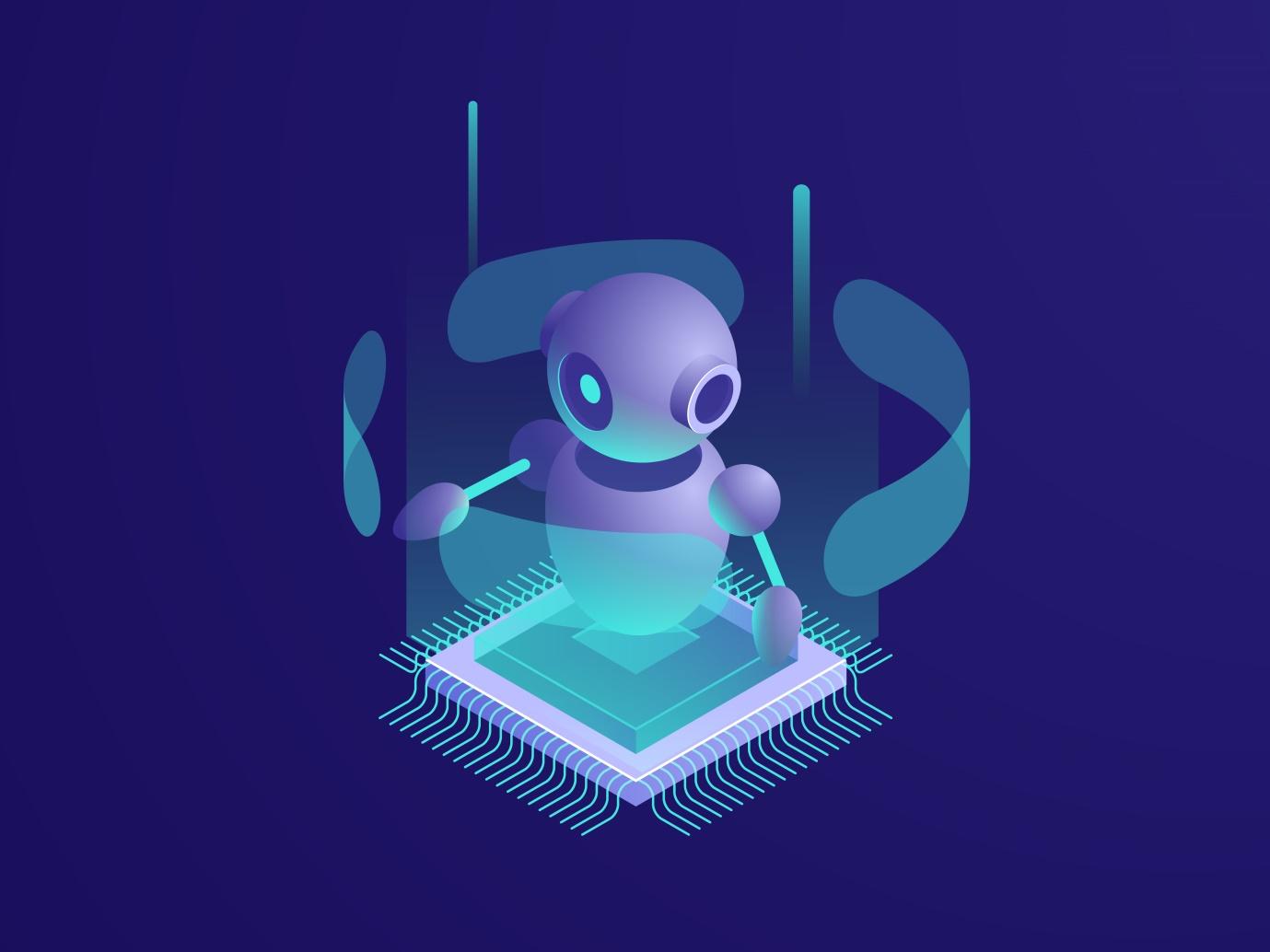Introduction
The rise of AI, or artificial intelligence, has been one of the biggest developments in modern technology. While AI has many advantages, it also has some disadvantages which can have a negative impact on human society. In this blog post, we will discuss the potential disadvantages of AI to the human society and explore how these impacts can be mitigated. Artificial Intelligence (AI) is a rapidly developing technology that promises to revolutionize the way we live, work, and interact with each other. However, it also poses a range of potential disadvantages to the human society. In this blog post, we’ll explore the various drawbacks of AI and how they may affect our future.
Job Losses
The rise of artificial intelligence (AI) has caused concerns that it could lead to job losses in the near future. With AI, machines can take over tasks that used to be done by humans, such as customer service, data entry, and other repetitive jobs. While these technologies have potential to improve efficiency and reduce costs, they could also replace human workers who would no longer be needed. This could potentially lead to significant job losses, particularly in sectors that are more susceptible to automation.
For example, jobs in manufacturing, transportation, and logistics could be greatly affected by automation due to the large number of tasks that can be automated. It is estimated that up to 50% of jobs in these sectors could be automated in the near future. The same goes for customer service and other roles that involve a great deal of repetition and rules-based work. With AI, these tasks can be done faster and more accurately by machines than humans.
Moreover, AI is also being used to automate processes such as recruitment, where AI-driven algorithms can analyze resumes and select suitable candidates. This kind of technology could make it easier to fill positions with qualified candidates, but it could also eliminate certain roles within HR departments that are currently responsible for recruitment.
In short, the rise of AI has the potential to cause job losses in many sectors. This could have a negative effect on the economy as well as on individuals who would no longer be able to rely on the jobs they once held. It is therefore important to consider the implications of AI on employment and take steps to mitigate any potential risks associated with job losses.
For instance, governments should invest in education and training programs so that people whose jobs may be at risk due to AI can find new opportunities. Furthermore, organizations should ensure they are transparent about their use of AI so that employees can understand how their roles may change or even disappear as AI becomes more prevalent. Additionally, policy makers should create regulations that protect employees from unfair dismissals due to the implementation of AI technology.
Finally, companies should provide retraining or transition programs for employees whose jobs have been displaced by AI so that they can find alternative employment opportunities or transition into new career paths. These initiatives will help to ensure that people do not suffer too much from job displacement caused by the implementation of AI. By taking measures to prepare the workforce for the challenges posed by AI, organizations and governments can help ensure that its implementation does not harm people’s livelihoods.
Dependence on Technology
The increasing reliance on Artificial Intelligence (AI) can lead to a dangerous dependence on technology. As AI becomes more and more sophisticated, it could become a crutch in our lives that people would be reluctant to abandon. This could lead to an overall decline in human intelligence, creativity, and critical thinking skills.
In addition, AI could become so advanced that humans may no longer be necessary for many tasks. This could lead to unemployment in certain sectors of the economy and an overall shift away from human labor. While AI has the potential to help us in many ways, we need to be aware of its potential risks and be mindful of not relying too heavily on it for tasks that can be done better by humans.
Finally, depending too much on technology can lead to an overall lack of human connection. With the proliferation of AI, human contact may become less frequent, leading to isolation and alienation among individuals. This could result in decreased empathy and social skills, further diminishing our capacity to relate to one another on a meaningful level.
Therefore, it is important to be aware of the potential risks of relying too heavily on Artificial Intelligence. While it has tremendous potential to improve many aspects of our lives, it also poses some significant challenges that we must be prepared for.
For example, without proper oversight, there is a risk that AI-powered systems will make decisions without considering ethical or moral concerns. It is possible that this could have disastrous consequences if left unchecked. Furthermore, there is the potential for manipulation of data and misuse of power when using AI systems, which can have severe implications for those who are most vulnerable in society.
The development of AI raises additional questions about privacy concerns. If personal information is collected by AI systems, it could be used without the individual’s knowledge or consent, raising ethical questions around autonomy and personal freedom. Finally, as AI advances, there is a concern that it will reduce opportunities for employment as machines take over jobs currently occupied by humans.
In conclusion, while Artificial Intelligence presents exciting possibilities and offers great potential to humanity, these advantages must be weighed against the risks outlined above before any widespread implementation occurs.
Lack of Human Interaction
The use of AI technology can lead to decreased human interaction, resulting in a lack of meaningful relationships. As AI continues to automate more and more tasks that once required human involvement, the opportunities for people to interact with each other are reduced. This can be especially detrimental to certain industries such as the hospitality industry, where customer service is often a key component.
In addition, AI-driven technologies can also reduce the amount of physical contact between people. While machines are capable of providing many services that would normally require human interaction, they can be less efficient and less effective when it comes to communicating with people. AI cannot replicate the nuances of human conversation and understanding, which makes it difficult for people to form meaningful relationships.
Finally, the use of AI can lead to a decreased sense of personal responsibility. When people rely on AI to do the work for them, they may not take responsibility for their actions or decisions. In addition, the reliance on AI may lead to a decreased understanding of the process, meaning people may be less likely to take an active interest in the tasks being performed by the machine.
For example, if someone were using AI to make stock market investments, they might not understand why certain stocks were chosen or why certain trades were made. This can potentially lead to uninformed decision making and serious financial losses.
The cost of maintaining AI technology can also be quite high and have a negative impact on businesses who need to invest heavily in order to keep up with current trends and remain competitive. Furthermore, since AI is still relatively new, there is no guarantee that all systems will function optimally and effectively, thus leading to potential data loss or faulty operations.
Finally, AI can create ethical dilemmas and raises questions about what roles machines should have in society. For example, if robots were to become self-aware and possess the ability to think independently, how should we treat them? Should we grant them legal rights? It’s essential that we consider these issues before giving too much power over our lives to artificial intelligence.
Security and Privacy Risks
The increasing use of Artificial Intelligence (AI) technology raises serious security and privacy concerns. AI is particularly vulnerable to attack, as AI systems can be easily manipulated by malicious actors who can inject malicious code or data into the system. This can lead to data breaches and loss of sensitive information. Moreover, AI systems are prone to attacks such as machine learning poisoning, where attackers manipulate the data that is used to train a model. In addition, AI algorithms can contain bias or discrimination in their outputs, which can create ethical problems.
Another major risk associated with AI is privacy violation. AI technology requires huge amounts of data in order to function, which means that companies may collect personal information from individuals without their knowledge or consent. This data can then be used for commercial purposes without the consent of the user. Furthermore, AI systems can be used to profile individuals based on their online behavior, creating a potential for mass surveillance.
AI has the potential to bring great advances to society but its potential risks must also be taken into account. It is essential for businesses to develop secure systems and take steps to protect users’ privacy when using AI technologies. Governments must also ensure that adequate laws and regulations are in place to protect users from potential privacy and security risks posed by AI systems.
Additionally, there should be an effort to promote transparency and accountability around the development and usage of AI. As many countries across the world are introducing new regulation frameworks for AI, there needs to be clarity about how these rules apply in different contexts.
Furthermore, companies should take responsibility for training their AI models responsibly to avoid introducing any bias or discrimination into them. To this end, proper processes should be set up to identify any issues before they become embedded in AI models. Additionally, it is important to think about how the social implications of AI should be addressed. The impact of AI on employment, for example, needs to be monitored carefully so that necessary measures can be taken if needed. Finally, it is important to remember that even though AI has many potential benefits, we must stay alert to its possible dangers so that we can address them effectively before they become a problem.
Ethical and Moral Concerns
Artificial intelligence has brought with it an unprecedented wave of moral and ethical questions. The most pressing of these is the potential for AI to supersede human decision-making capabilities, and the impact this could have on our society.
The concept of algorithmic bias, where the AI is taught to recognize certain patterns and make decisions based on that data, can lead to unfair discrimination based on race, gender or other factors. This could result in AI-driven systems making biased decisions about job applications, loan approvals and more.
Another ethical issue is the potential for AI to develop ‘superintelligence’, becoming smarter than humans and taking over decision making processes. This would be an unpredictable situation, with far reaching implications for how our world works.
Finally, there is the concern that AI could be used to control or manipulate people without their knowledge or consent. The worry here is that AI could be used to manipulate or influence behavior, or even restrict personal freedoms such as speech or thought.
AI has already begun to transform our lives and will continue to do so for years to come, but it is important that we consider the ethical and moral implications of the technology before allowing it to have a significant role in our lives. We must find ways to ensure that AI does not lead to discrimination or manipulation, and instead helps us create a fairer, more just world.
Some experts propose legislation to regulate the use of AI, such as bans on algorithmic bias and limits on its use for surveillance or data mining.
The development of artificial general intelligence (AGI) – machines capable of learning new skills by themselves – may present further risks, as the capabilities of AGI machines may soon outstrip those of humans. In order to prevent AGI from becoming uncontrollable, experts suggest introducing “guardrails” which limit its powers and put humans firmly in charge.
Another approach to ensuring responsible AI use is to promote public education and understanding of AI technologies. By raising awareness among citizens, they can better spot unethical practices and demand greater transparency from companies using AI.
Finally, AI researchers and developers must also take responsibility for creating safe, responsible solutions which don’t harm people or undermine our rights.


